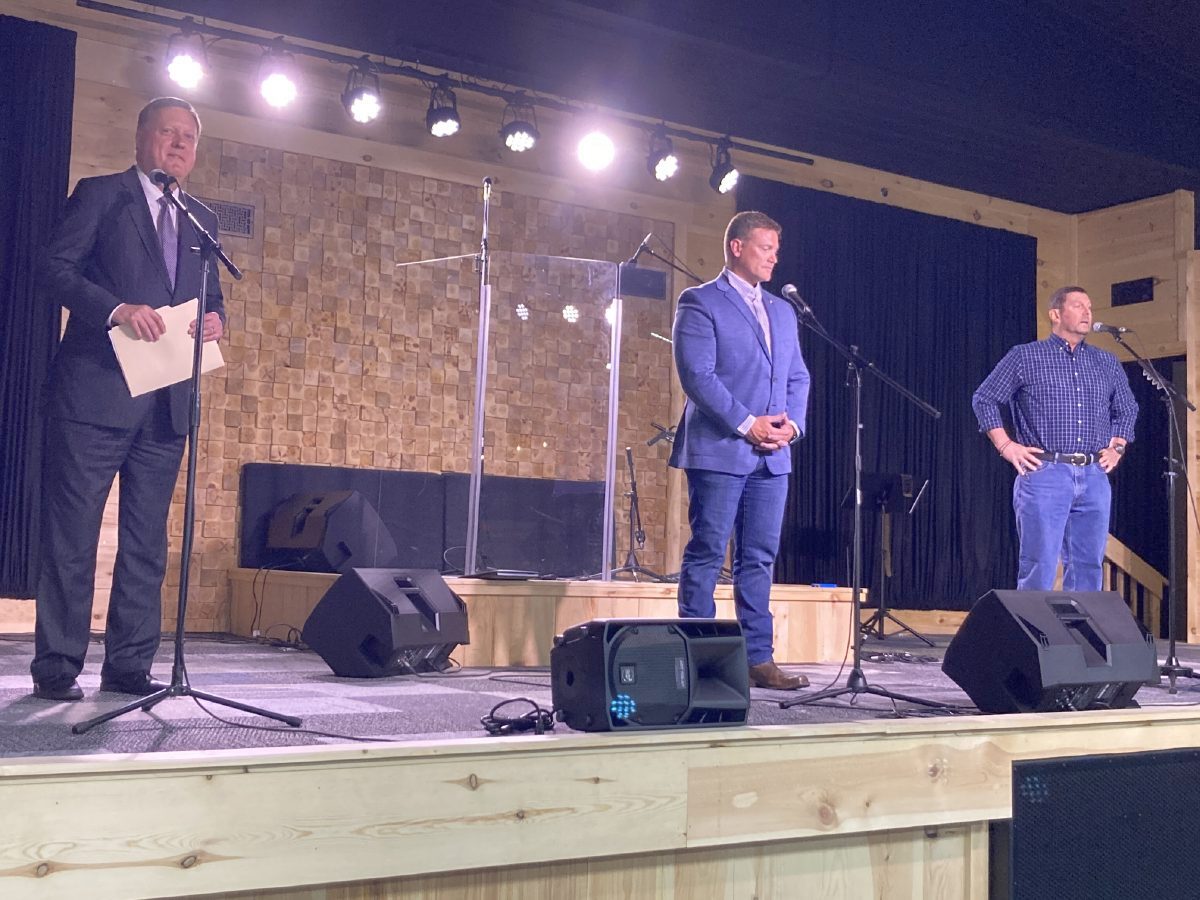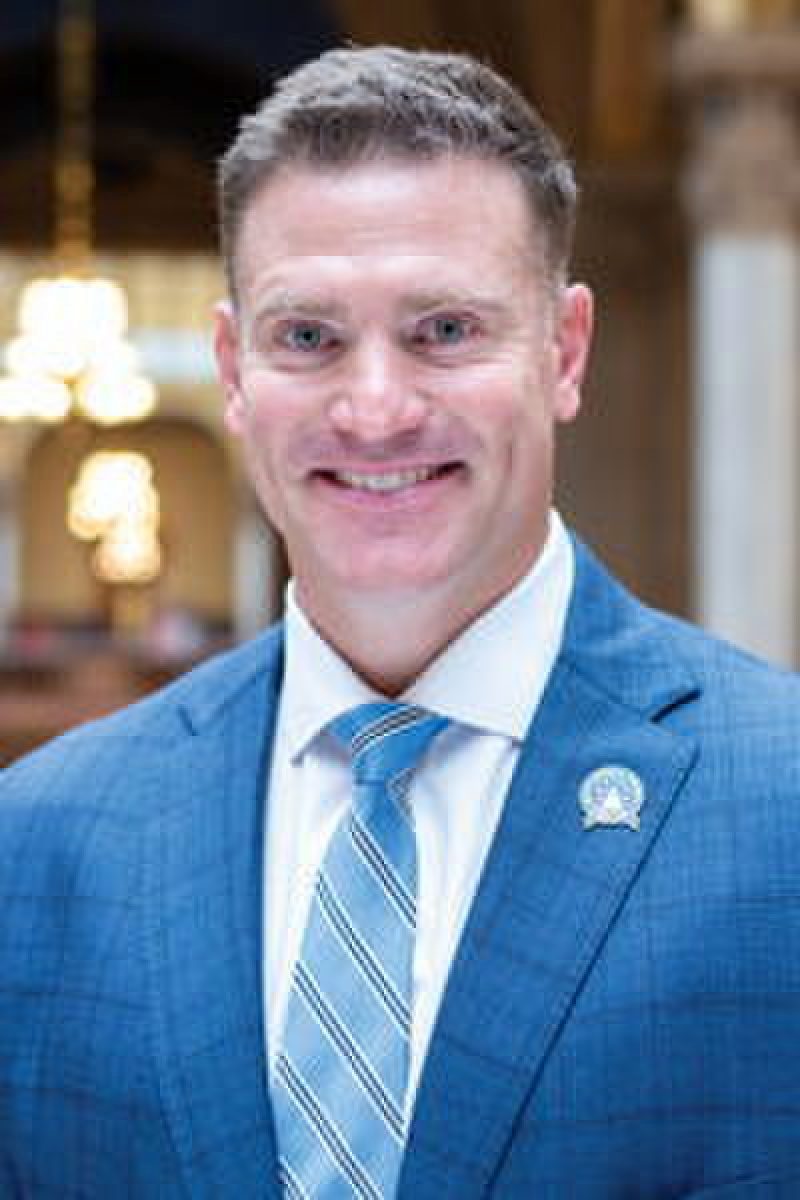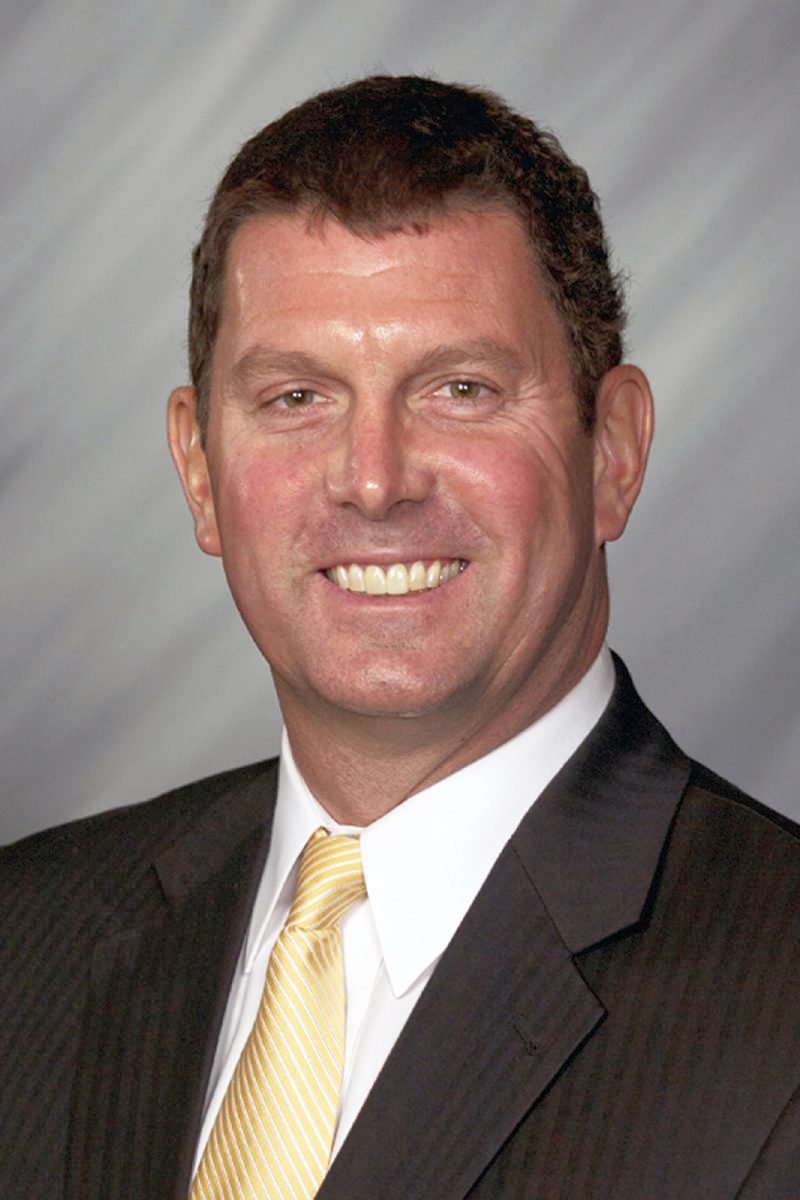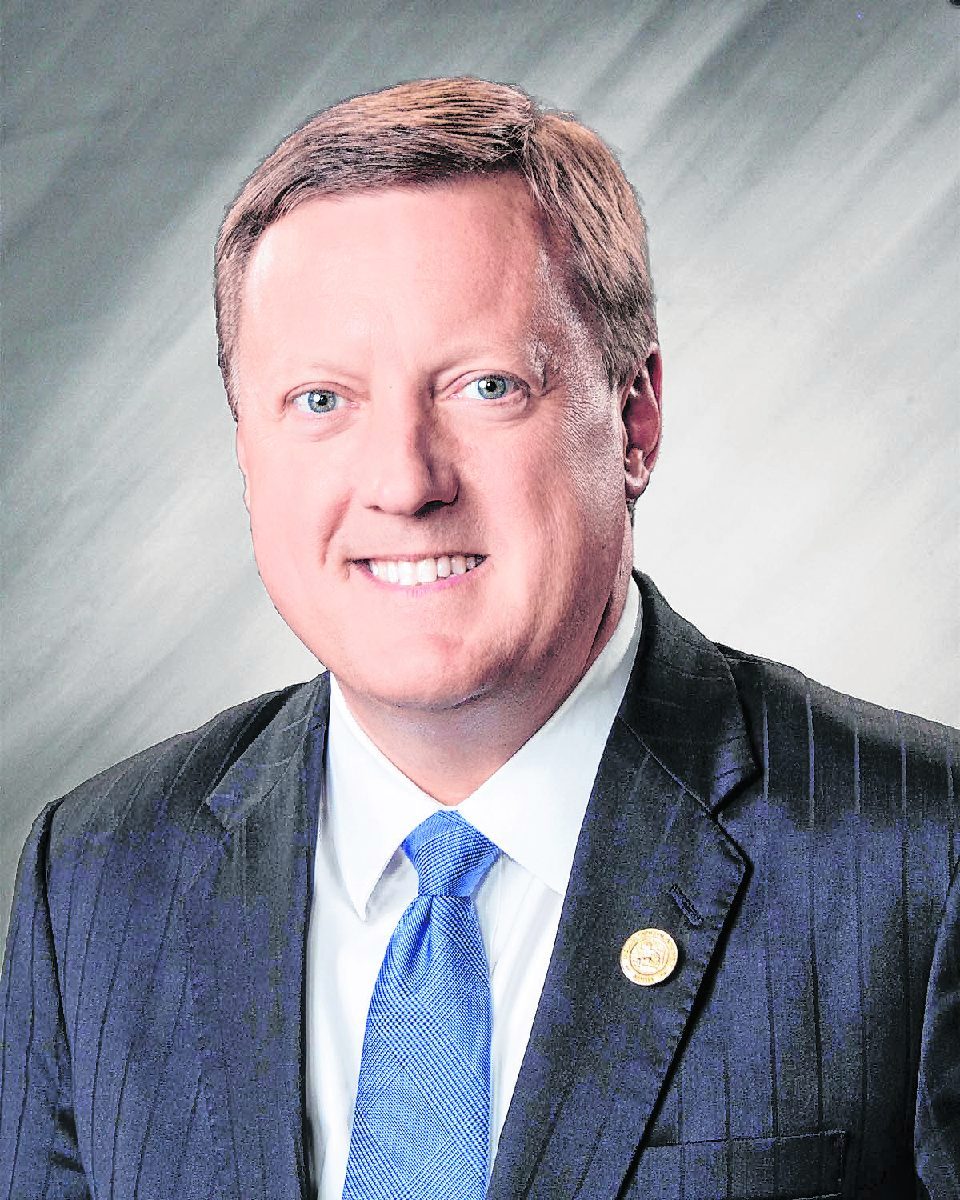
Local lawmakers representing Jackson County recently received the chance to talk about their work during this year’s legislative session that ended April 29.
That work included crafting a $37 billion state budget for the next two years, which includes $3 billion in federal funding for coronavirus relief.
“You can’t leave the budget discussion without noting the funding of education at historic levels and fulfilling the mandates of the teacher compensation report,” District 44 Sen. Eric Koch, R-Bedford, said during a meeting Tuesday evening at Jackson Live and Event Center in Seymour. That public meeting was organized by the Jackson County Republican Party.
During the session, $1 billion was added to the two-year $16 billion budget that will go toward K-12 schools. The funding allows for a minimum teacher salary of $40,000 a year. The funding in teacher salaries came from a compromise worked out by lawmakers and the Next Level Teacher Compensation Commission.
The legislature must approve a state budget every two years during longer sessions that must end by April 30. A non-budget year shorter session must end by March 15.
Even though the budget was approved and the regular session is completed, the House and Senate extended the deadline for adjourning the 2021 legislative session from April 29 to Nov. 15 to give them time to plan for redistricting state congressional and legislative districts. Data from the Census Bureau is expected to be released in August or September, and lawmakers will vote on redistricting before the November deadline.

Besides Koch, other lawmakers attending the session were District 45 Sen. Chris Garten, R-Charlestown, and District 69 Rep. Jim Lucas, R-Seymour.
Koch said out of the state’s 50 senators, only 30 were allowed in the Indiana General Assembly chambers this session due to COVID-19 protocols.
Despite those restrictions, Koch said lawmakers were still able to make a lot of progress.
“Thanks to a lot of hard work and a lot of forward thinking, we completed the session and it was very successful,” he said.
Regarding the power of government officials over Hoosiers during times of emergencies, Koch touched on legislation he worked on that established what power the government has during an emergency order.
“The COVID overlay did cause a lot of thinking between citizens and our government during times of emergencies,” he said. “We spent a lot of time dealing with that, specifically the issue of the emergency orders and what those mean for things like religious freedom, like education … like health care.”
When asked what all of the legislators did to modify the emergency powers of the governor, Koch said he authored a bill that stops the government from restricting the right of the people to worship or to worship in person during a disaster emergency.
Garten authored Senate Bill 5, which retools local pandemic restrictions to allow local elected officials to override emergency order restrictions. It also requires local health officers to consult with elected officials before enacting health orders.
“It was not an attack on public health departments. It was not an attack on public health officers,” Garten said. “It simply provided a check and balance to an unappointed official who had unparalleled power in a time of emergency.”

He said government is built on the voices of its people, and those voices getting through to the government are the backbone of the state’s constitution.
The Senate voted to override the veto 36-10 on May 10 and the House also voted 59-30 on May 10 to override the veto. The governor also has filed a lawsuit against legislation limiting the governor’s executive powers.
Jackson County Commissioner Drew Markel commended the three legislators for overriding the governor’s veto.
“The executors that are elected in communities should be in control of their communities,” he said. “If those communities do not believe in that, they will elect someone else.”
Lucas said he voted against the measure defining what powers legislators have in a state of emergency because even though he thought it was good in theory, he felt it didn’t go “far enough.”
“My thing is the constitution is meant to guard us against the dangers of good intentions,” he said. “I like Gov. Holcomb, but I vehemently disagreed with a lot of decisions he made in this pandemic. I feel a lot of our constitutional rights were clearly infringed.”
He later said nothing with religion should be addressed with state code.

“Constitution supersedes government,” he said.
Lucas said he’s working on legislation for next year that reworks the state’s emergency powers law and said it should be “gutted and start over.”
He voted for Indiana’s gas tax in 2017 and said the reason why is the state has a fully funded 20-year plan for roads. He also said 100% of the money the state gets in funding from the gas tax goes toward roads.
“We’re not bonding these projects, we’re paying for them,” he said. “We’re not putting this construction and debt on the backs of our children. We’re paying as we go.”
Drew Storey, a Seymour City Council member, praised the state’s Community Crossings Matching Grant and said it has been vital for small businesses and that roads are good and infrastructure is improving.
“Small communities, like Seymour, are very much in support of being able to bring those tax revenues back to the local leaders to really make those (spending) decisions,” he said.
Jackson County Councilman Dave Hall said the county has been struggling with road funding and has been “doing way less with way less money than where we were four years ago.”
Markel agreed and said the county has an issue with road funding and government funding of roads has been “hit substantially.”
Lucas and Koch both said they would be willing to work with Hall and Markel about road funding concerns.
After the three lawmakers spoke, local elected officials spoke briefly about some of their accomplishments in Jackson County and Seymour.
Kari Storey, president of the county council, and Hall spoke about the ongoing construction of the work release center and of J.L. Brewer, director of Jackson-Jennings Community Corrections, and his instrumental help in getting the facility started.
Due to a partnership with Jennings County, Hall said the county didn’t have to raise taxes to pay for construction of the work release center. The center is set to open June 3, Hall said.
Storey said after the 2019 municipal election, six of the seven city council members were new, and the city had a new mayor and a new clerk-treasurer. He said 2020 was a real growing year for learning how to run the city.
